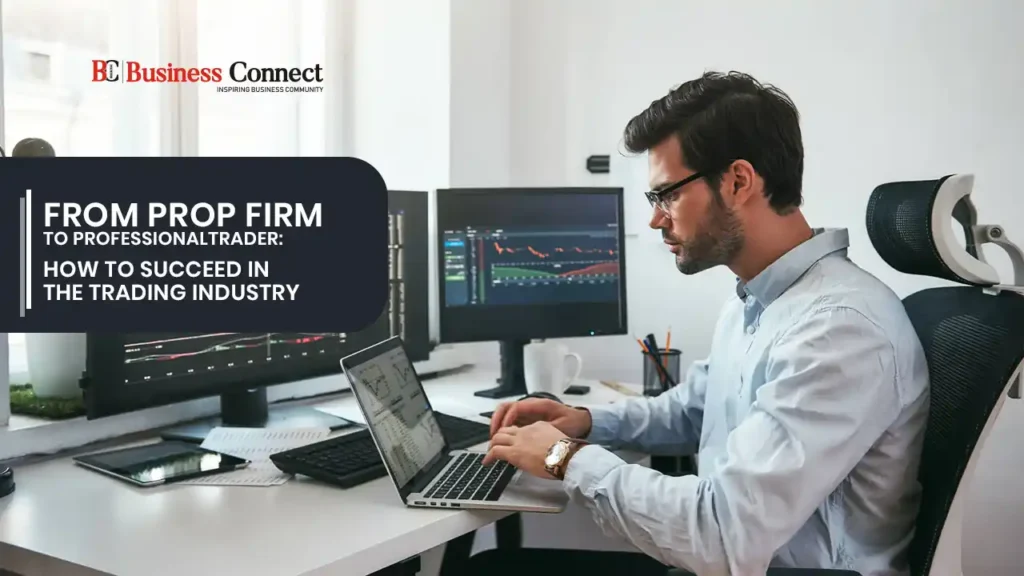Mastering discipline and strategy are crucial for a trader to become successful in a highly volatile market environment. Numerous traders kick off their careers at proprietary trading firms, gaining access to substantial amounts of capital and refining skills rapidly. Leap from a proprietary firm trader to industry professional demands extensive market savvy and real-world experience. It requires relentless perseverance and a pretty solid grasp of financial nuances. Seven key factors dictate overall success down the line in this whole trading scene.
1. Establishing a Strong Trading Foundation
A professional trader is not made created overnight. The best of them start with learning the fundamentals—technical analysis, market trends, and trading psychology. With a solid foundation, traders can develop strategies that work in different market conditions. Without it, even having access to plenty of capital will not make one successful. Whether it’s price action interpretation, reading financial reports, or following economic updates, continuous learning separates amateurs from professionals.
2. Creating a Disciplined Risk Plan
Risk management is the key to every prosperous professional trader. Great traders lose, but the difference is they know how to manage losses. This involves possessing stop-loss, risk-reward ratios and never leveraging. Emotional trading leads to taking on too much risk, and if there is no structured risk plan, even a highly skilled trader can blow through his accounts. Working diligently on a risk strategy allows traders to protect their capital and stay in the game long enough to succeed.
3. Transitioning from a Prop Firm to an Independent Trading
Most traders use prop trading firms as a bridge, but transitioning from a funded trader to an independent professional requires careful preparation. With a prop firm, traders have access to big capital with no personal capital risk, but they must play by the rules. To make the shift, the traders must accumulate personal capital and modify their operating strategies beyond the structured environment of a prop firm. Others choose to stay with an instant prop firm to continue enjoying access to capital and build their trading accounts in the process. Combining both can be a great way to be independent yet financially stable.
4. Building Trading Psychology and Emotional Control
Trading essentially becomes a fiercely psychological undertone coupled with technical aspects. Destructive emotions like fear, greed, and impatience rapidly ruin trading careers due to poor decision-making under pressure. Skilled traders master emotions and stick firmly with plans during extremely volatile market conditions. Experience fosters confidence yet gaining control over emotions requires deliberate mental effort.
Maintaining daily records of trades and meditation often brings profound mental serenity amid chaotic circumstances. Remaining calm under pressure gives a trader a substantial edge over somebody acting wildly on impulse.
5. Adjusting to Shifting Market Conditions
Markets are not static, and a strategy that works today may not work tomorrow. Successful traders know how to adapt their strategy to shifting trends, economic news, and global events. Be flexible—following outdated strategies can lead to unnecessary losses. Traders who constantly learn and try new strategies remain ahead. It could be the integration of algorithmic trading, new asset classes, or optimizing technical indicators, but the essence is continuous flexibility for long-term success.
6. Increasing Knowledge Beyond Trading Charts
A successful trader does not just look at charts—they know the broader context. Interest rates, economic releases, geopolitics, and company quarterly earnings all have their effects on market movements. Traders with extensive knowledge of macroeconomics and industries can make better decisions. Expanding the knowledge base beyond price action allows traders to forecast changes in the market and stay ahead of large movements. With this enhanced knowledge, traders are also better able to diversify their methods and take advantage of more substantial fiscal opportunities.
7. Learning and Networking from Experienced Traders
Success in trading is not a one-person show. Interacting with experienced traders, joining professional trading forums, and learning from guides can be insightful. Professionals tend to share market knowledge, risk management techniques, and methods that can help new traders avoid mistakes. Networking also results in potential job opportunities in hedge funds, trading firms, or investment banks. Surrounding oneself with intelligent and disciplined traders can accelerate growth and sharpen trading skills.
Conclusion
It’s not merely talent that is required to progress from a prop firm trader to a professional trader in the market—it requires discipline, adaptability, and a strong understanding of money markets. There needs to be a good foundation, good risk management, self-discipline, and continuous learning. The top performers understand that making money is just the beginning—true success comes from consistency and continuous growth in a dynamic environment. With the dedication to constant improvement and strategic decision-making, individuals can establish trading as a profitable, long-term profession.
Add Business Connect magazine to your Google News feed



